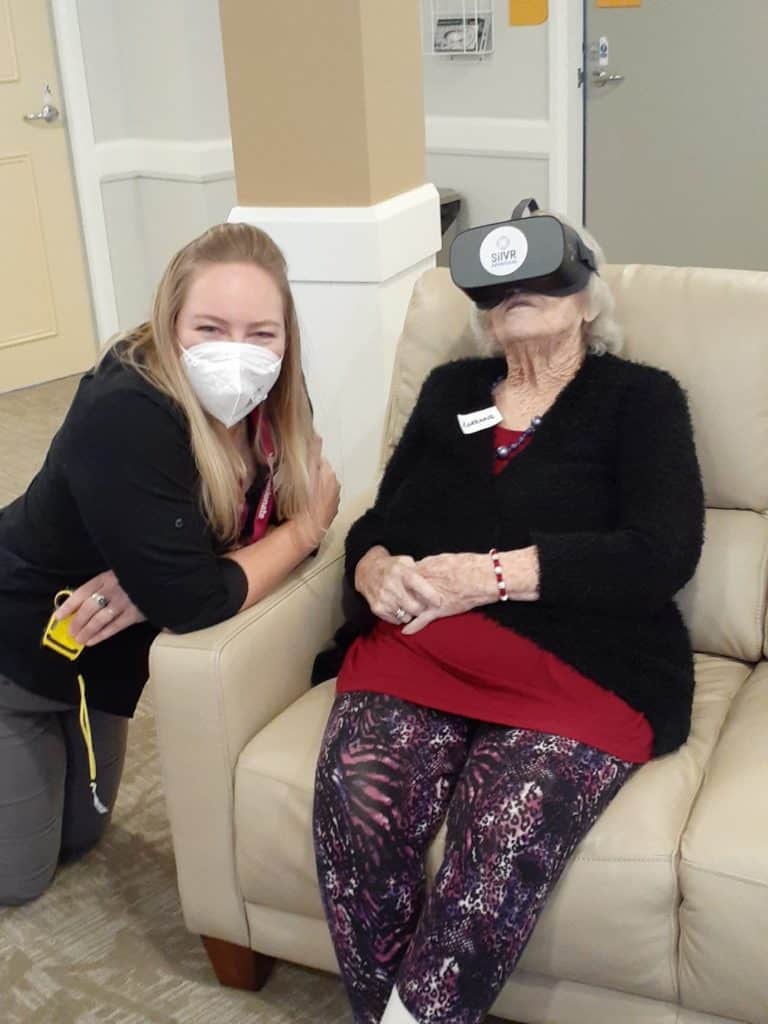Residents enjoying a cup of ‘Back-To-Reali-TEA’ after a shared experience in virtual reality
How can strengthening social connection help to accelerate social recovery? We take a deeper look at a newly released White Paper from Ending Loneliness Together (ELT) to discover the path to social recovery post-pandemic.
Loneliness and social isolation are a fundamental public health issue of our time. Both have a massive impact on our mental health, physical health, education, productivity, overall happiness, and our well-being in society.
There are people in our community who address loneliness such as doctors, nurses, and social workers. These front-liners help people feel more connected and help them realise they belong. Offering empathy is a service and oftentimes, these professions are undervalued for the empathy that comes with their job.
The empathy that comes with their jobs helps develop a more well-connected society. This is unfortunately something a community is lacking in if there’s a high prevalence for social isolation and loneliness. A more well-connected society requires a cultural change. With this cultural change comes policy changes as well. Cultural changes make policy changes both possible and sustainable as it takes an entire society to form this movement.
The World Health Organisation (WHO), states that the best strategy to address social isolation and loneliness as a global public health issue is to establish a high-level commission on social connection. We need a coordinated effort to generate greater visibility for the problem at a global level and make a persuasive case for addressing it, mobilise political support and funding, and accelerate the development and scaling up of cost-effective interventions.
The impacts of social disconnection post-pandemic have caused significant risks to health, social and economic outcomes within our communities. Two years into the pandemic, many Australians came out feeling resilient.
However, a substantial minority came out feeling like their mental health was compromised. This is likely due to risk factors ranging from lack of social support, financial distress, and employment insecurity.
The issue of loneliness is present in all countries and isn’t just limited to developing nations.

The three key recommendations include understanding social connection, loneliness, and social isolation for effective action. To take the necessary steps, we need to understand the social outcomes we’re after. To reach these social outcomes, we need to understand that one size does not fit all as we have diverse and complex social needs. Although there should be standardised approaches to evaluating outcomes related to loneliness, social isolation, and connection, we should also address loneliness and social isolation as preventative and intervention targets for better health, social and economic outcomes.
This should be addressed in clinical settings to prevent / delay the onset of poorer health and social outcomes. To follow through with these recommendations, there are four key calls to action to follow. Firstly, we develop a strategic framework for social connection. This should be done to deliver higher quality social care. We should also strengthen workforce capacity across all sectors. These members of the workforce should go through evidence-based education, training, resources, and practical solutions.
Other than the workforce, we should also empower our communities to help one another. Events such as national community awareness campaigns will ensure all Australians feel like they’re able to seek help when needed. To fuel these initiatives, we need to invest in Australian-based scientific research to specifically target loneliness and rapidly translate evidence-based research into practice.
The road to social recovery post-pandemic will not be an easy journey but it’s not impossible. This journey is only possible with the cooperation of the members of society along with the front-liners to deliver the four key calls to action.
Ending Loneliness Together (ELT) is a national Australian organisation working to raise awareness and reduce the negative effects of loneliness and social isolation in our community through evidence-based interventions and advocacy.




